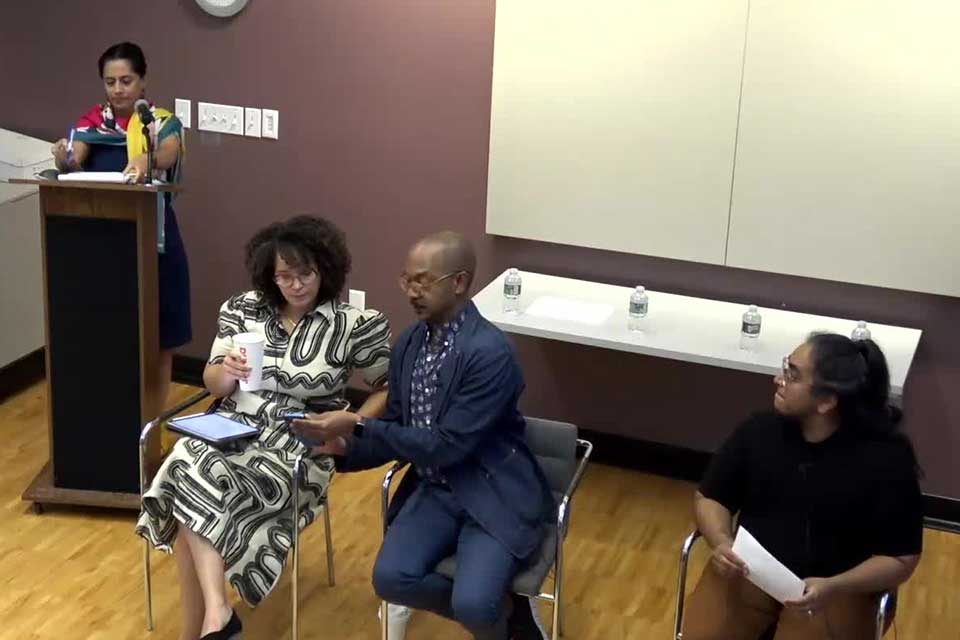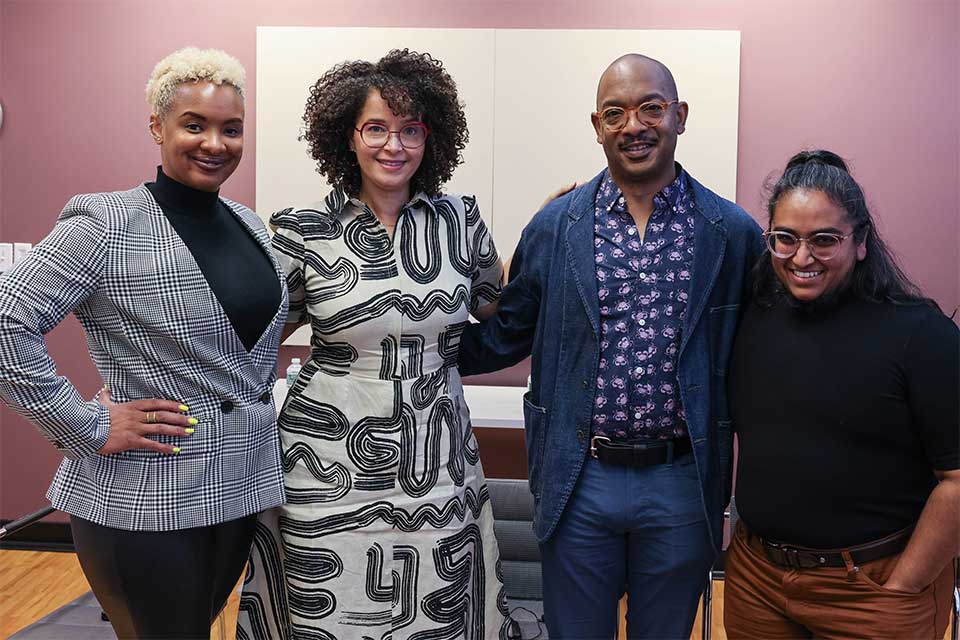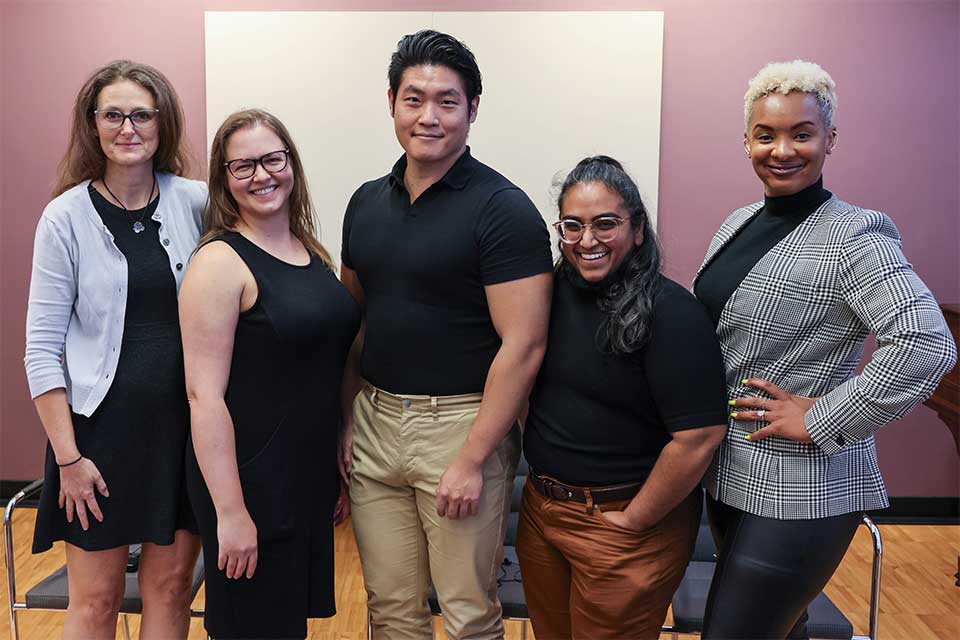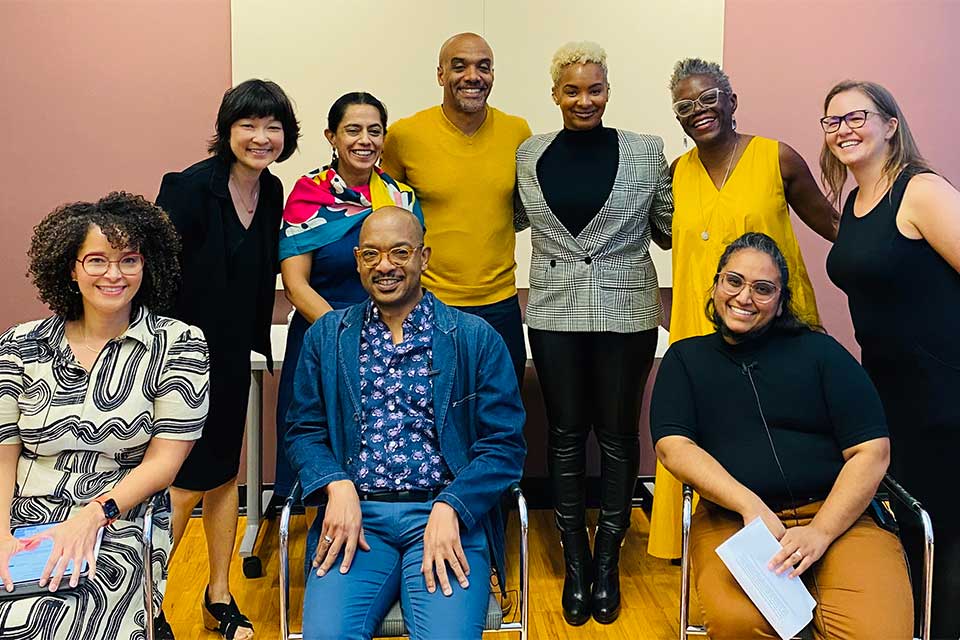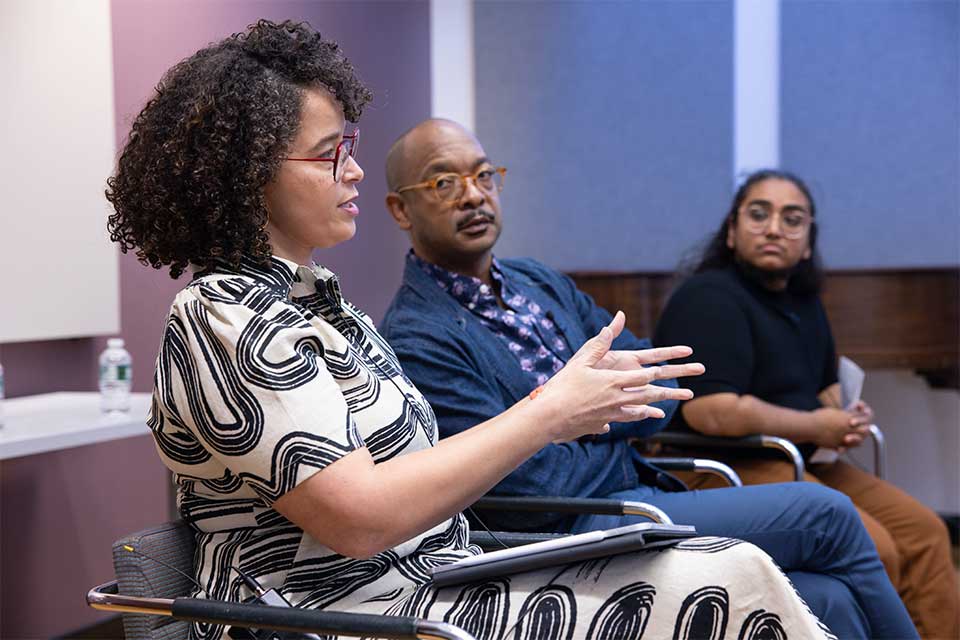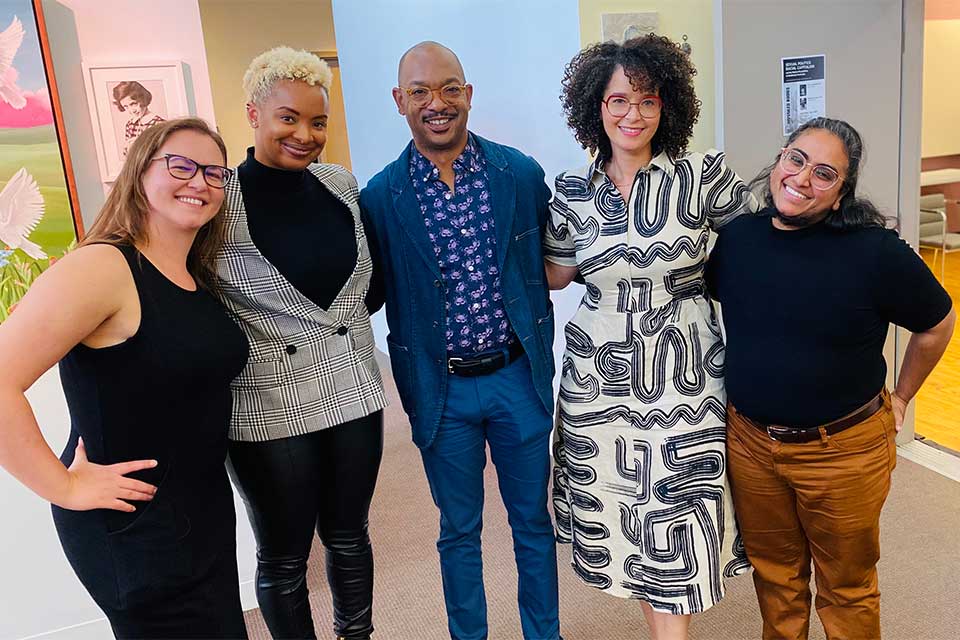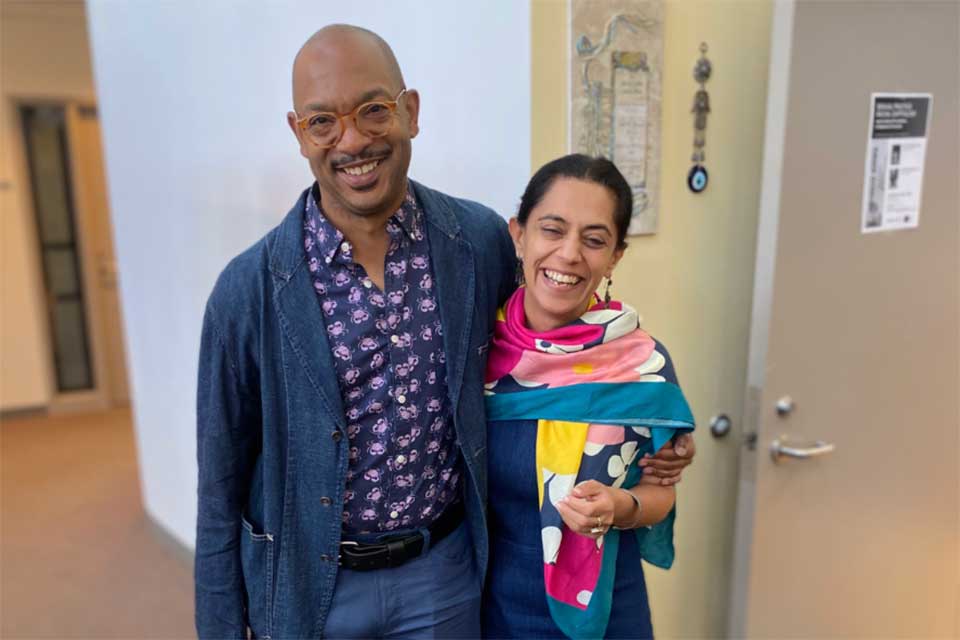First Mellon Sawyer Session Inspires Community to Think About the Everyday Ways We Can Do Better
On Sept. 19, 2023, esteemed Black Studies scholars Erica R. Edwards and Roderick Ferguson of Yale University reflected on sexual politics, racial capitalism, and abolitionist feminism in a packed lecture hall in the Women’s Studies Research Center at Brandeis University. Brandeis WGS faculty Shoniqua Roach (co-organizer) and V Varun Chaudhry (co-organizer and moderator) led the conversation, which paid homage to queer, trans, anti-capitalist, internationalist, grassroots, and women of color feminist activists and scholars working to dismantle prisons and policing to bring about alternative social formations.
“We can do better than that,” Roderick Ferguson said of prisons and policing, and of theorizations of racial capitalism that fail to deeply engage linked structures of race, gender, and sexuality. Erica R. Edwards echoed this ongoing call to possibility and recovery, also underscoring that we have, in many instances and contexts, done better already. Among those who have are Black women historians and theorists such as Brandeis alumni Angela Y. Davis and Hortense Spillers whose conceptions of political economy account for the enslavement of Black women as an originary scene of racial capitalism. Abolition is based, Edwards emphasized, in such alternative stories that attend seriously to Black women as “historical and liberationist subjects.”
Having guided speakers in this discussion of multiple sites where knowledge is produced in and beyond the university, moderator V Varun Chaudhry ultimately asked: amidst an onslaught of ongoing structural violences, what feels inspiring? What does it mean and feel like to do the work of recovery? In response, speakers invited attendees to think about the transformative potential of the everyday - from reading and writing to organizing and attending potlucks. These practices are vectors of alternative possibilities, sketching an expansive horizon that far exceeds the dictates of heteropatriarchy and institutionality. Such quotidian practices call upon and channel what Edwards and Ferguson characterize as the “analytical plenitude” offered by Black feminist, queer, and trans of color thinkers, nurturing what Roach called the “deep and abiding belief” that we can do better.
Posted by Carmel Ohman, Sept. 22, 2023
This was the first of nine sessions in the year-long Mellon Sawyer Seminar, “Imperiled Bodies: Slavery, Colonialism, Citizenship and the Logics of Gender-Based Violence” led by PI Anita Hill, co-PI Harleen Singh, and ChaeRan Freeze at Brandeis University. Brandeis University sponsors and resources include the Heller School for Social Policy and Management, the Department of Women's, Gender, and Sexuality Studies, the Mandel Center for the Humanities, the Women’s Studies Research Center, the Hadassah Brandeis Institute, the Feminist Sexual Ethics Project, the Rose Art Museum, the Kniznick Art Gallery, the Gender and Sexuality Center, and the Prevention, Advocacy, and Resource Center. This seminar is among the signature events of the Heller 65th Anniversary year, Celebrating Knowledge Advancing Social Justice #Hellerat65.
